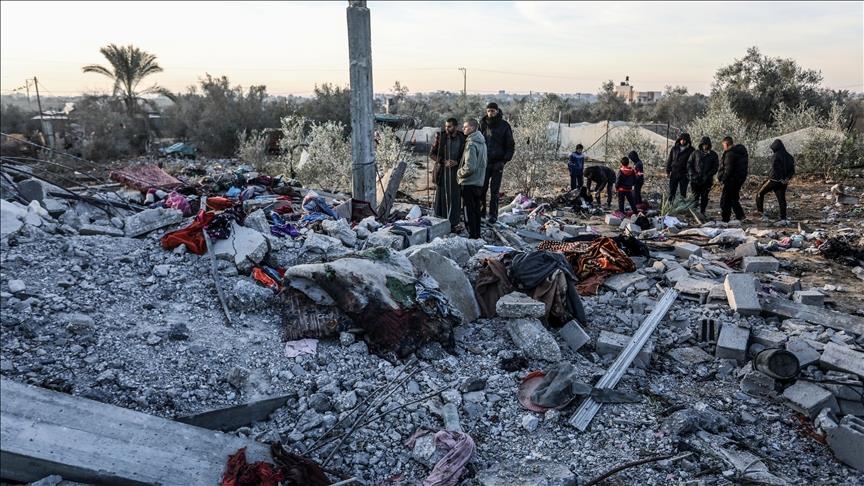Biden and Trump's national security advisors hail bipartisan efforts for Gaza cease-fire
Both Jake Sullivan and Mike Waltz indicate Gaza cease-fire and hostage exchange deal is imminent

WASHINGTON
White House National Security Advisor Jake Sullivan and his incoming successor Mike Waltz highlighted bipartisan efforts to secure a cease-fire and hostage exchange deal in Gaza during a ceremonial event at the United States Institute of Peace on Tuesday.
"There's been reporting of (incoming) President (Donald) Trump's Middle East envoy Steve Witkoff, out in regular contact and out there right now with (White House Middle East coordinator) Brett McGurk, and they're both reporting back to both of us and back to the president-elect and the president (Joe Biden), as we have a shared mission to get our people out and to get the Middle East back on track towards stability and towards the next round of the Abraham Accords, or normalization," Waltz said.
Waltz also described the Palestinian group Hamas as "incredibly isolated." He said its miscalculations in relying on the Lebanese group Hezbollah and global protests had shifted dynamics against it.
"Every time they got the news of these antisemitic protests on our college campuses and that Hezbollah could be coming in, and seeing calls for regime change against the democratically elected Israeli government, they thought they were winning and could continue to sacrifice their own people to turn world opinion against the Israelis," he said.
"That dynamic has very much shifted, and it’s why we think we're so close to getting some sort of agreement in the short term," he added.
Sulivan said the Biden administration hopes to close out the cease-fire and hostage exchange deal this week, adding the "actual implementation and execution" of the deal will remain to the next administration.
He described Hamas as “decimated” while underscoring progress toward a potential cease-fire.
“Hopefully, we will get a deal in place that can be built on,” Sullivan said, adding that an integrated Middle East remains a key goal, noting the Abraham Accords and the focus on a long-term normalization track between Israel and Saudi Arabia were tied to steps forward towards a Palestinian state.
The Abraham Accords, signed in 2020, are US-brokered agreements that normalized diplomatic relations between Israel and the United Arab Emirates, Bahrain, Sudan and Morocco following earlier peace treaties with Egypt and Jordan.
Reports indicate that Israel and Hamas are close to finalizing a cease-fire and prisoner exchange deal, spanning three stages over 42 days.
The breakthrough comes following threats by President-elect Trump that “all hell will break out in the Middle East” if a hostage deal is not reached.
Israel's ongoing military assault on Gaza has resulted in the killing of more than 46,600 people, the majority of whom are women and children, since a Hamas attack on Oct. 7, 2023.
Iran and Syria
Sullivan also reflected on the administration's foreign policy, saying “Iran is at its weakest point since the Iranian Revolution. It’s lost the deterrent power of its main proxy, Hezbollah. It’s lost its main state client, Assad. Frankly, it’s lost its air defense capability, and its economy is reeling. So Iran is in a weak position, and that creates real opportunities, but also brings risks."
He cautioned about Iran’s shifting stance on nuclear weapons, describing it as "a matter of considerable concern.”
"I think there is an opportunity now with Iran and the position it's in to conduct diplomacy, to try to get the negotiated outcome that puts Iran's nuclear program fully in a box," he added.
Turning to Syria, Sullivan noted the fall of Bashar Assad as a "brutal dictator responsible for the massacre of so many of his citizens," which he said presented opportunities and risks, including the potential resurgence of ISIS (Daesh).
"We have in this transition period really intensified the military tempo of our campaign against ISIS so that they cannot reconstitute in a serious way," he added.








